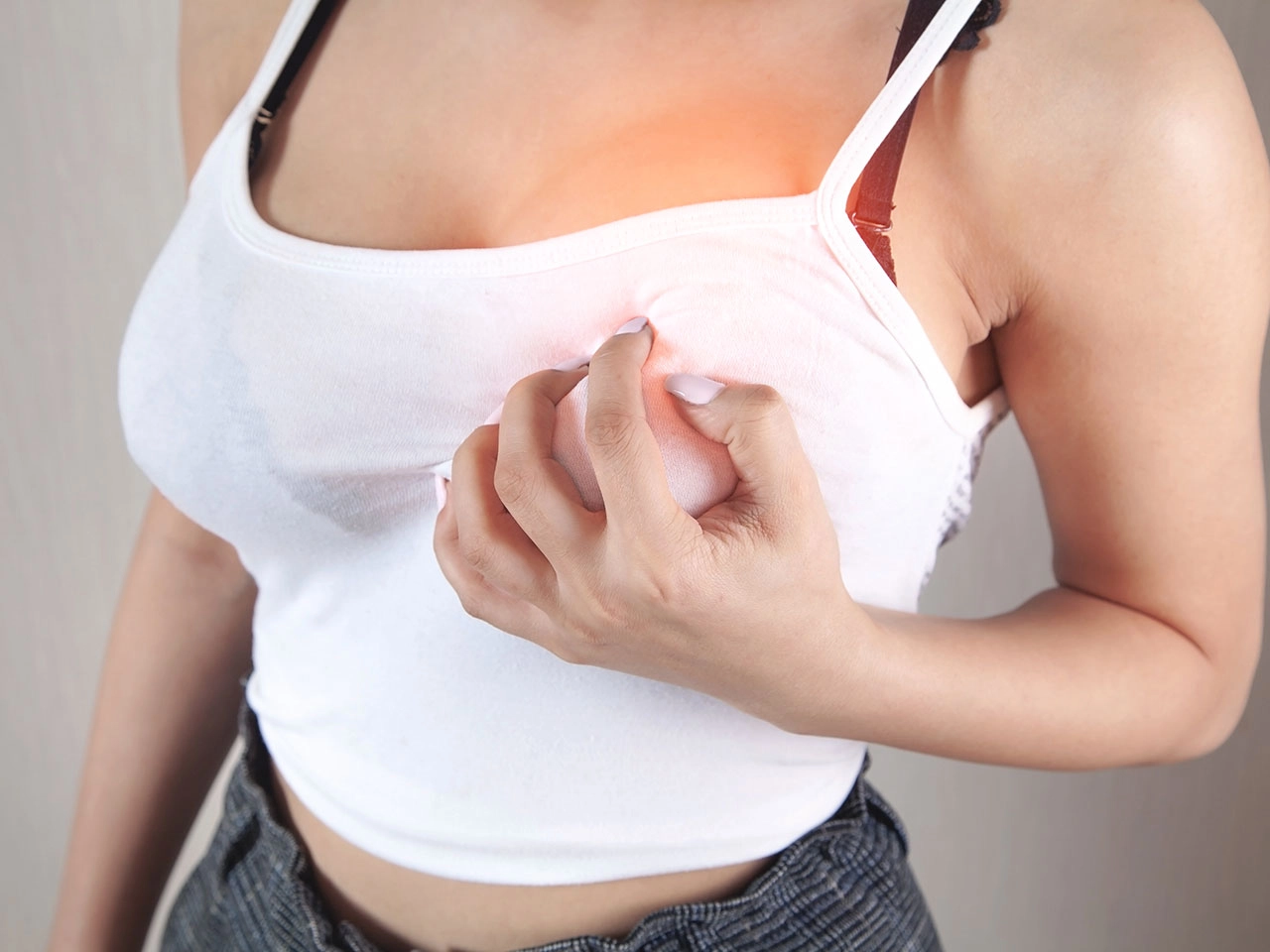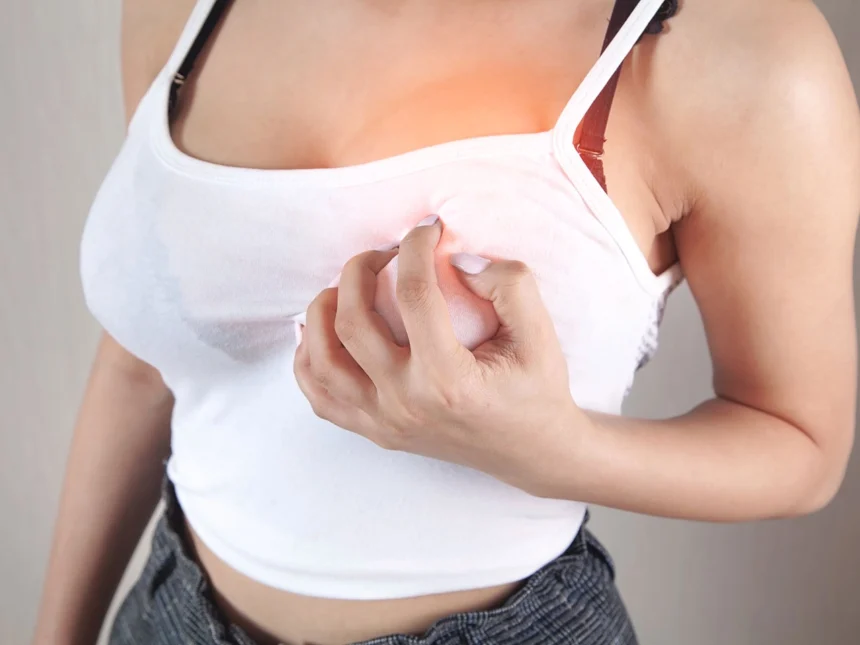Itching of breasts can be discomforting, but it is very common during pregnancy. You may become cautious of the itchiness all of a sudden, but it does not mean there is a health issue. This is part of the many changes your body undergoes when you conceive.
Itching is sometimes a sign of pregnancy in early stages and may last till the final trimester. Learn more about breast changes throughout the pregnancy here. Unless there is an underlying health issue, this condition causes no harm and usually subsides with the use of simple home remedies.
Causes of itchiness
The increase in the level of progesterone and oestrogen makes your skin sensitive and prone to dryness and itchiness. Some women experience tender nipples as early as 15 days after conception. The nipples start to crack and itch. During pregnancy, the rising hormonal levels drive blood flow to the breast area. This causes them to swell and expand. The skin being sensitive here, starts breaking up, because of the stretching and this leaves an itching sensation. Pregnant women may also feel soreness in nipples, tingling sensation and heaviness in breasts.
Other causes
- Striae Gravidarum – This condition, also known as stretch marks is caused by the growing skin around nipples during the third trimester, resulting in dryness and itchiness.
- Eczema- Most women are likely to develop itchiness of breasts due to eczema during their first and second trimesters.
- Chafing, yeast infections and certain health conditions may also cause itchiness.

Home remedies to help relieve itchiness
Suitable clothes
Choose the right fabric that keeps you comfortable throughout your pregnancy. Cotton is the best choice, as it absorbs sweat and is light and airy. It helps keep you dry and itch free. If your breasts feel uncomfortable, it is better to switch to a comfy, breathable bra to prevent irritation.
Avoid fragrances
Perfumes and scents cause dryness of skin and itchiness. It is better to stay away from creams, soaps and detergents composed of fragrance.
Stay hydrated
Drink enough water to avoid skin dryness and to retain moisture on skin.
Take lukewarm baths
Bathing or showering with very hot water can lead to dryness of skin. Keep your showers short, because too much time in water may also cause dryness.
Choosing moisturiser
You may choose a moisturiser to apply on your dry and cracked breasts and nipples. Ensure that it is of good quality, mild and free of alcohol and fragrance. Moisturisers enriched in vitamin E, petroleum jelly or cocoa butter help in alleviating itchiness.
Natural oils
You may apply natural oils such as olive oil, almond oil or lavender oil on the dry, scaly areas to help with healing.
If the home remedies don’t seem to have any effect on you, it is important to seek medical professional’s help to sort out the problem and get medication.







